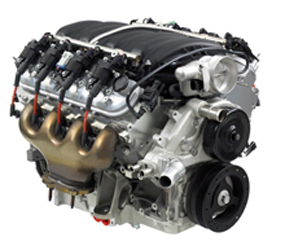P0C33 Engine Code Repair
Meaning of P0C33 engine trouble code is a kind of powertrain trouble code and P0C33 if your catalytic convertor fails completely, you eventually won't be able to keep the car running. Your gas mileage will also be terrible, so you should try and fix it as soon as you can. Unfortunately, the average replacement cost is around $2,140 and you can't do it yourself unless you're an experienced mechanic.
P0C33 Fault Symptoms :
- Check engine light comes on
- Engine stalling or misfiring
- Engine performance issues
- Car not starting
If one of these reasons for P0C33 code is occuring now you should check P0C33 repair processes.
Now don't ask yourself; What should you do with P0C33 code ?
The solution is here :
P0C33 Possible Solution:

Excessive air inflow can be caused by a vacuum leak, a dirty sensor or, an exhaust gas recirculation valve not closing properly. If the problem is not enough fuel, the culprit may be dirty injectors or fuel filters, a weak fuel pump or a leaky fuel pressure regulator. The lean fuel mix error may be accompanied by rough idling, engine misfires, hesitation during acceleration and overall poor engine performance.
P0C33 Code Meaning :
P
OBD-II Diagnostic Powertrain (P) Trouble Code For Engine
0
Intake Valve Control Solenoid Circuit Low
c
3
Turbocharger Boost Sensor A Circuit Low
3
Glow Plug/Heater Circuit 'A' Malfunction
Is the fuel pump sometimes not priming when you turn the key to ON(II)? Start by measuring the fuel pressure and checking whether you have bright white-bluish spark at all four plugs. The mechanical timing is also something that you should check, as we mentioned above.
P0C33 OBD-II Diagnostic Powertrain (P) Trouble Code DescriptionP0C33 engine trouble code is about Glow Plug/Heater Circuit 'A' Malfunction.Main reason For P0C33 CodeThe reason of P0C33 OBD-II Engine Trouble Code is . |
P0C33 DTCs may also be triggered by faults earlier down the line. For example, a dirty MAF sensor might be causing the car to overcompensate in its fuel-trim adjustments. As a result, oxygen sensors are likely to report fuel mixture problems.
